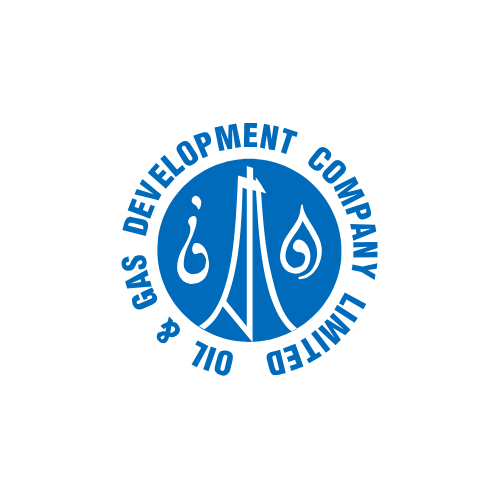Pakistan has finally got the opportunity to look towards its economic development after facing internal and external security turmoil during last few decades. It is willing to prioritize economic security and leverage it to protect the national interests. The shift from geo-political confrontation to geo-economic cooperation was proposed by National Security Adviser, Moeen Yousuf. Foreign Minister Shah Mehmood Qureshi has also reiterated Pakistan’s commitment to ‘geo-economic shift’ during his physical and virtual contacts with several countries including Germany, and Egypt. The country has started diversifying its economic and diplomatic engagement with states. Domestically, the situation is rather vague when it comes to economic attributes necessary for pulling geo-economic strategy. Pakistan is facing recurrent need of foreign loans, trade deficit, narrow export base, and low international market share. This puts question whether the strategy would ever be materialized or not. To prevent the latter scenario, government should work on the means for successful achievement of geo-economic goals.
First of all, Pakistan needs to enhance its engagement in the regional economic setups to diversify its trade partners, prevent or lower obstacles in the form of trade barriers, prevent export diversions and secure FTAs with different countries. It will also enhance Pakistan’s inclusion in global supply chains (which currently stands at meagre 0.08%) and ensuring domestic competitiveness in production and supply. Pakistan wants to be the Full Dialogue Partner in ASEAN plus six; however, its membership is denied by three members (Vietnam, the Philippines and Singapore). Pakistan is reaching out to these states bilaterally, but the process will be smooth if it engages with them at multiple levels and fora. The most recent neglect in this domain has been in the form of non-membership of RCEP, which includes East Asian economic giants (South Korea, Japan, China, Australia, etc.). Most of East Asian states do not have extensive trade relations with the inner Asia. Pakistan can offer them to extend their trade in these regions through CPEC. This is especially true for South Korea and Japan, since CPEC will reduce time of access and curtail their insecurity due to Hormuz dilemma as almost 80% of their trade depends on this strait. Also, there is an incentive for these states to invest in Pakistan in SEZs, infrastructure, hydropower projects, theme parks development, and coastal development. Pakistan has 300,000 English speaking IT specialized young people, and overall 2/3rd of population is youth. This human capital can also be a big potential for these states. Most of advanced East Asian states (like Singapore, Philippines, and Thailand etc.) also face the threat of terrorism. Pakistan can help them through its own successful experience of counter-terrorism. Moreover, Pakistan can pursue both public-partnership and privatization with these states for efficient industrialization and refunctioning of disabled industries.
Secondly, Pakistan should also embark on joining US and its allies’ led ‘B3W Initiative,’ which is a 40 trillion dollars infrastructure project for facilitating the developing countries in building back better. The initiative is argued to be ‘anti-China,’ but is not necessary to be projected this way since one of G-7 members, i.e. Italy, is also a BRI partner. More than 100 countries have already signed agreements with China under BRI. B3W is more like giving an opportunity for the states to develop themselves and to balance their policies between both strategic and economic competitors. Pakistan, with its aspirations of pursuing independent policy-making and remaining neutral in US-China competition, can get benefit politically and economically from joining B3W, as well. It has already signed a multilateral deal with USA, Afghanistan and Uzbekistan, which focuses on regional stability, peace and connectivity. This is a good incentive for Pakistan to further this deal for entry into B3W project.
Thirdly, as Pakistan is already working on enhancing its tourism due to the richness of natural aesthetic places with all their diversity, there is a need to develop better transport facilities, modern infrastructure that would boost the potential. Pakistan should work on maritime tourism as well, which can be a huge industry, but given the poor management of the beaches and limited development, it does not come under global attractive tourist destinations despite having the potential. The lack of attention is not limited to tourism domain. Pakistan has marine area of 240,000 square kilometers which makes up to 36.4% of the country’s territory. If the maritime area of Pakistan were a land piece, then it would be a little greater than Punjab province. This tells that Pakistan has blessed blue economic zone. The all year functional seaport of Karachi and Port Qasim and world’s deepest port Gwadar with its strategic location add more to its significance. Despite all this, unfortunately, Pakistan suffers from what we call sea blindness (people are not aware of maritime potential). At one time, Pakistan ranked first in ship-breaking industry but now it’s fourth with India being at the top and Bangladesh at second place. It should tap its resources and capitalize on them, be it maritime coast, maritime tourism or even fisheries. There is a need to educate people that sea is not a dumping source but a potential which is to be utilized. It should also enhance public-private partnerships (at both national and international levels) so that the ports and its resources can be developed. Pakistani elite go to Thailand, Mauritius etc. to visit their beaches which are not unique, but just well-developed. Pakistan needs technological advancement as there is no advanced technology for handling massive cargo and even for cleaning up the shores. The technologies for fishing are also not advanced and environment-friendly due to which it was banned many times by international community.
Fourth, Pakistan should expand the export base and opt for modern techniques for efficient production and long-term preservation. The country is already a major exporter of textiles, fruits, cereals, vegetables, pharmaceutical instruments, and sport items. Recently, it has started the export of meat to states like China, Malaysia etc. Domestically, Pakistan should introduce price tags for utility items that are same across the country, so that food items’ exploitation through hoarding practices can be prevented. Pakistan must increase its competitiveness in these exports by introducing modern technological methods. This is necessary as competitors of Pakistan in these exports are being facilitated by regional mechanisms. Also, being one of the four largest milk producers in the world, Pakistan should introduce cold supply chains for efficient domestic use and even bringing it at international standard for exports. Subsidies and government intervention (packaging laws etc.) are required to reap economic benefits in terms of employment, food security and revenue. States like Turkey, India, Bangladesh, Malaysia etc. have already developed dairy industry. It also needs to shift its exports’ orientation towards IT sector that is more economically productive for state economies in this information age.
Fifth, Pakistan must work on its positive image through soft power tools, like public diplomacy that do not only target international audience, but also national one. There is a need of unanimous understanding between government and public about certain policies, so that there is no room for misunderstanding, repulsion and policy failures. Internationally, too, Pakistan has to work on its ‘image,’ because in this age of media, people believe what they see, without considering who’s behind the scene or what other aspects of reality could be. The initial climate snub, recent re-listing Pakistan on UK’s Red-list, and non-removal of Pakistan from FATF’s list—all point to the need of ‘soft and liberal image’. International audience must be convinced about Pakistan’s tolerance towards diversity in all aspects, i.e. cultural, religious, political, economic and social. This is necessary for them to know the other side of the coin, and for Pakistan to have international confidence in business, tourism and diplomacy. The first step towards this is what PM Imran Khan said, ‘self-belief’. During National Amateur Short Film Festival (NASFF), ISPR Chief Gen. Iftikhar Babar said that the youth should take “the responsibility of showing the real Pakistan,” which is ‘extremely beautiful and magnificent’ through their film-makings.
As for Jaishankar Doctrine—ignore, isolate and intimidate Pakistan, which seems to be working, yet it needs to be ignored. Pakistan should keep, on its part, diplomatic and peaceful methods of engagement open for India. It should engage and have as many partners as possible in East Asia, South Asia, Middle East, North and Central Africa, Europe and Americas, because the aim is now to ensure Pakistan’s ‘economic security’ with the goals of ‘peace and progress’ as stressed by FM Shah Mehmood Qureshi. In a single sentence summary, there is a need of substantive reforms, not just conveyed policies, because they are the means to remove the obstacles, which Pakistan currently faces in the materialization of its geo-economic strategy.





